Emeritus status
Emeritus status is the highest recognition Université Laval confers on faculty members.
2020
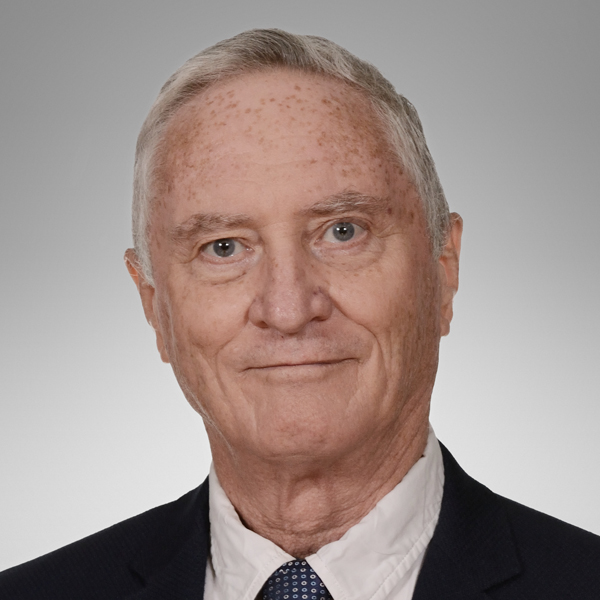
Michel Allard
Professor Emeritus
Learn more
Michel Allard's work has made a palpable impact on quality of life in northern communities and the sustainability of their infrastructure in the age of climate change. He was at the leading edge of efforts to develop a full-fledged research and knowledge-sharing partnership with the Inuit communities of Nunavik and Nunavut.
Renowned expert and dedicated professor
Over the course of his prolific career, Michel Allard has built an impressive body of knowledge on Quaternary geology, geomorphology, permafrost science, and climatology. He has taken a special interest in northern communities' vulnerability to climate change and the impact of thawing permafrost on the natural environment and infrastructure in the Far North. His work has generated major technical and technological advances that have addressed the engineering challenges of building in these regions. Thousands of people now benefit from his discoveries.
Professor Allard's brilliant scientific career has garnered many prestigious awards. In 1998 he received the R.J.E. Brown Memorial Award from the Canadian Geotechnical Society in recognition of his outstanding contribution to permafrost science and engineering. In 2006 the Government of Canada presented him with the Northern Science Research Award. In 2015 he was awarded Canada's first Governor General's Polar Medal. In 2017 he received the W. Garfield Weston Family Prize for Lifetime Achievement in Northern Research, which included a$100,000 grant. In 2019 the Canadian Permafrost Association presented him with the Hugh M. French Award.
Michel Allard's work has earned sustained financial support from funding agencies. From his arrival as a professor at Université Laval in 1981, he has received continuous funding from the Natural Sciences and Engineering Research Council of Canada through the Discovery Grants program. Since 2004 he has been an active researcher with ArcticNet, part of the Canadian Network of Centres of Excellence. Michel Allard's work was instrumental to the ambitious program to install and monitor a network of thermistor cables to feed the database of climate and thermal information that provides the majority of data on Eastern Canada for major international studies on climate change and permafrost. The results of research by Professor Allard and his teams have been published in over 130 articles and presented at over 500 presentations at conferences and symposia.
Michel Allard has excelled in his role as a Université Laval professor. He has supervised over 60 graduate students and assumed key administrative roles, including director of the Centre for Northern Studies from 1992 to 1996 and acting director in 2008 and 2009. From 1998 to 2004, he headed up the Department of Geography, overseeing the department's transition from the Faculty of Arts and Human Sciences to the Faculty of Forestry, Geography and Geomatics.
There is no doubt that Michel Allard's scientific rigour, research skills, and leadership have been pivotal in establishing Université Laval as a leader in northern studies and positioning the university at the forefront of efforts to improve living conditions for people in the Arctic.
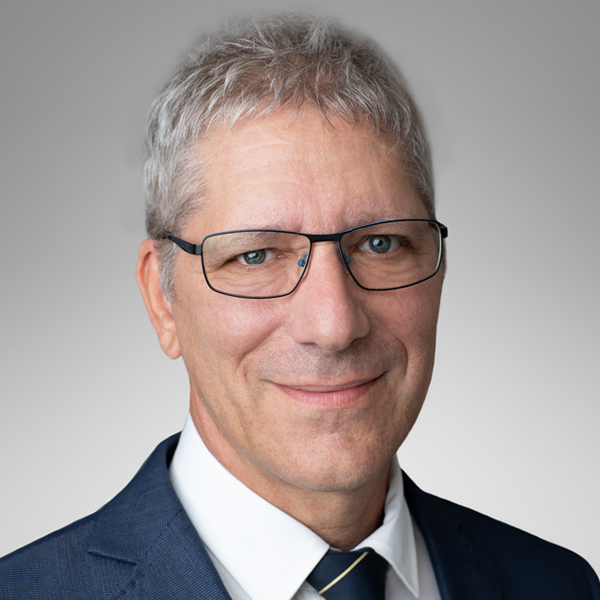
Jean François Bernier
Professor Emeritus
Learn more
Professor Jean François Bernier has made teaching a priority throughout his career. He has built bridges between research, education, and industry to improve agronomy and animal sciences education programs and train professionals and top researchers. A seasoned manager, dedicated professor, and internationally recognized researcher, he has helped strengthen numerous programs at the Faculty of Agriculture and Food Sciences.
Fruitful partnership
Professor Bernier has sought to foster hands-on education with real-world working conditions. Over the years, he has forged countless relationships with industry partners through fieldwork, lab work, visits to companies, and internships. A much-admired teacher, he incorporated original teaching material into his courses. His expertise in the field of nutrition and animal nutrition made him an asset as a participant and director of numerous research projects. As part of this work he trained some thirty graduate students, many of whom now hold key positions at top organizations.
Professor Bernier's commitment to quality education, his dedicated, proactive attitude, and his sincere desire to help Université Laval succeed made him a natural fit on numerous committees. He put his leadership skills to work, supervising multiple programs, including graduate programs in animal sciences, the undergraduate program in agronomy, and the certificate in animal production. In this capacity, he championed significant improvements to recruitment practices and course curricula, including introducing courses with an environmental component and developing international partnerships. Professor Bernier's ever-evolving approach to teaching provided his students with professional opportunities. He was always committed to training the next generation of university graduates to meet the needs of the job market. For the undergraduate program in agronomy alone, registration increased 75% in ten years during his tenure, a credit to his team's commitment to his vision.
Jean François Bernier has extended Université Laval's influence both locally and internationally, including with granting organizations such as Agriculture and Agri-Food Canada, the Natural Sciences and Engineering Research Council of Canada, France's National Research Institute for Agriculture, Québec's Pork Development Centre, the Québec Reference Centre for Agriculture and Agri-food, the Animal Nutrition Association of Canada, and Québec's Order of Agronomists.
Professor Bernier's ability to innovate in all aspects of his career has led to a long list of achievements that will benefit students of agronomy and the animal sciences for years to come. As a result, the industry is in the capable hands of a new generation that is ready and willing to innovate. And Université Laval has garnered a strong reputation for teaching and research in agricultural and food sciences.

Raymonde Crête
Professor Emerita
Learn more
Professor Raymonde Crête is a prominent corporate lawyer and a trailblazer in corporate law, financial services, securities, and corporate governance research and education in Québec. A prolific researcher, she has carried out more than 30 research projects, produced over 100 publications, and has been cited extensively in jurisprudence and legal literature. She has boosted Université Laval's standing in the legal world as a director of research groups, organizer of high-profile conferences, influential member of government committees, guest researcher at international events, and trainer for business leaders.
A stellar career
Professor Crête joined Université Laval's Faculty of Law in 1978 and became a full professor 1993. She dedicated her career to carefully training multiple generations of jurists. In addition to transferring knowledge, she endeavored to equip students with the ability to think critically about the social, economic, and legal issues involved in regulating the business world. She has supervised dozens of graduate students, involving them in her research, instilling them with a passion for the legal profession, and providing a launch pad that has propelled many of them into prominent positions in the legal community.
Raymonde Crête has conducted over 30 innovative research projects with support from the Social Sciences and Humanities Research Council of Canada, Autorité des marchés financiers, and the Québec bar association. She has authored some 100 publications on corporate law. This impressive contribution continues to be instrumental in training the next generation of lawyers. Her publications include Droit des sociétés par actions (Corporate Law), an in-depth analysis of Québec's Business Corporations Act and the Canada Business Corporations Act. Heading up the Centre for Studies in Economic Law in 2006 and the Financial Services Law Research Group in 2007, Professor Crête has helped Université Laval's Faculty of Law become a locus of corporate law expertise.
The salience and originality of Raymonde Crête's research have made her a sought-after expert for key government initiatives. She sat on the expert committee created in 2009 by the Québec finance minister to overhaul the Business Corporations Act, the Québec Business Protection Task Force established by the Québec finance and economy minister in 2013, and Autorité des marchés financiers' Financial Products and Services Consumer Advisory Committee in 2019. She has also contributed to various parliamentary commissions and public consultations on legal protection for investment and savings in Québec and Canada. She has organized ambitious conferences and given talks around the world to advance and share knowledge. In 2019 her outstanding career earned her the title of Emeritus Lawyer from the Québec bar association.
Her exceptional contributions to government, the financial services industry, and the university, legal, and business communities have raised Université Laval's profile at home and abroad.
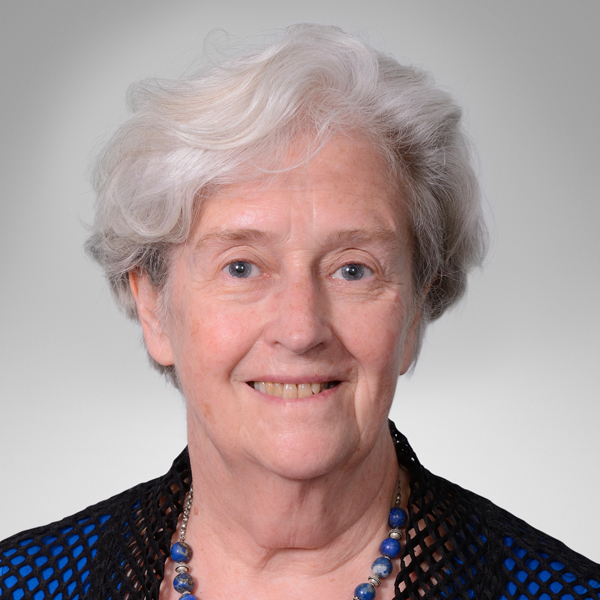
Zita De Koninck
Professor Emerita
Learn more
Professor Zita De Koninck's research on French-foreign-language education has changed the lives of thousands of people in Québec and around the world. Her decades of work have addressed one of the key factors for integrating immigrants in Québec—learning French. Time and again, her expertise has been sought out by governments, school boards, the academic community, and immigrant organizations. Her work has equipped educators to teach people from all over the world who are eager to join Québec society.
Research talks
Zita De Koninck is a pioneer in French-foreign-language education and has trained generations of students and interns. From her appointment as full professor in 1999, until her retirement in 2017, her passion for teaching never waned. She has taught the introductory course on language education with trilingual units nearly 30 times—each one with renewed enthusiasm—and has supervised dozens of graduate students. Professor De Koninck has held key academic management positions at the Faculty of Arts and Human Sciences, including director of undergraduate studies, director of graduate studies in linguistics, and vice dean of undergraduate studies.
She has conducted basic research that has attracted interest from the Québec and international university communities and provided the impetus for major social projects. On numerous occasions, Québec's Ministère de l'Éducation has called on her expertise to help create policy on intercultural education and design forward-thinking educational tools that inspire and assist educators. As part of a major government initiative in 2006, she and Françoise Armand from Université de Montréal were tasked with investigating the quality of services offered to immigrant students. Their report, Portrait des services d'accueil et d'intégration des élèves issus de l'immigration (Profile of Reception and Integration Services for Immigrant Students) brimmed with fresh insight. Then, from 2012 to 2014, Professor De Koninck led an initiative to support French-language education for well-educated and under-educated allophone students.
Numerous school boards and educational bodies have commissioned Professor De Koninck to produce teaching guides to improve educational approaches and practices for non-francophone Québec immigrants. As a member of the Inter-University Working Group on Intercultural and Inclusive Expertise in Education, Zita De Koninck continues her work in a field that has been near and dear to her for so many years—teacher training. She is an educator at heart and continues to transmit her knowledge and understanding of the French language at the Rêver en français (Dream in French) workshops, a series she founded to assist anglophone and allophone students in graduate programs. To date, it has provided over 400 students with valuable knowledge that has helped them integrate into the university community and Québec City.
Professor De Koninck's research and hands-on work has helped foster intercultural bridge building and exchange through the acquisition of language skills. Her approach and commitment to her work reflect her openness to the world, a mindset that is highly prized at Université Laval and across Québec.
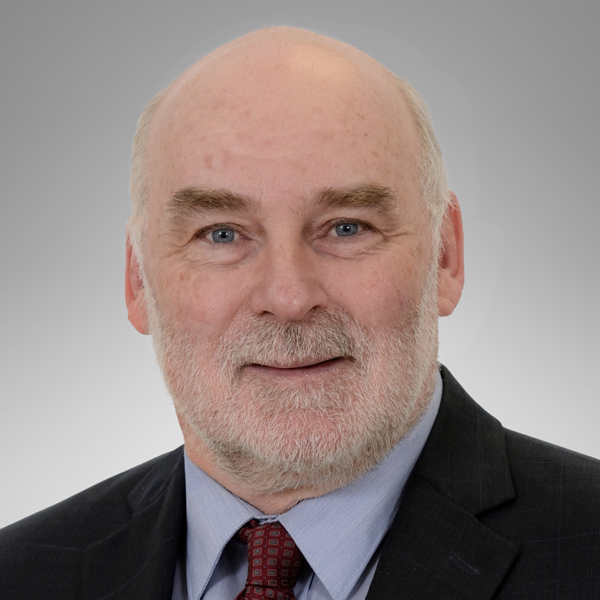
Serge Dumont
Professor Emeritus
Learn more
Professor Serge Dumont is a prolific author and a pioneer in palliative care research who has transformed the way the medical community approaches and handles end-of-life care. A visionary and a unifying force, he has succeeded in rallying the expertise, talent, and resources needed to implement a more humane approach to care and optimize interprofessional collaboration in health care and the social sciences. He has paid particular attention to psychological distress among informal and family caregivers and the financial hardships they endure. The cornerstone of his work is his conviction that fostering collaboration in the health system is a powerful way to improve services and care and ultimately relieve suffering.
A true leader
Serge Dumont's academic career got off to a promising start—the Canadian Psychological Association awarded him top honours for his PhD dissertation in counselling psychology. It was a harbinger of things to come. Since then, he has authored over 75 scientific publication and nearly 150 papers. His research has won numerous awards, including the prestigious Cicely Saunders Prize from King's College London for an article he published in the Journal of Palliative Medicine in 2010.
Professor Dumont's work on end-of-life care addresses the intersection of three major issues facing public healthcare systems: the humanization of care, best practices for interprofessional collaboration, and organizational performance of services and care. Professor Dumont has spearheaded the creation of numerous bodies and networks dedicated to advancing knowledge and improving practices. For example, he co-founded the Michel-Sarrazin Research Team in Psychosocial Oncology and Palliative Care, which heads up the Québec Network for Palliative and End-of-Life Care Research.
Professor Dumont has mobilized the faculties of health sciences and social sciences to create Canada's largest centre for expertise in interprofessional collaboration, the Collaborative Network on Interprofessional Practices in Health and Social Services, where he served as scientific director from 2009 to 2014. His ability to bring together stakeholders in health and social sciences research was the driving force behind the 2013 creation of VITAM, the Centre for Sustainable Health Research, which is home to over 71 research specialists and nearly 100 graduate students from six Université Laval faculties, making it the largest research institution for community-based care and services in Canada. Under Serge Dumont's guidance as scientific director, the Vielle-Capitale Health and Social Services Centre gained primary health care and social services university institute status, confirming its leading role.
Professor Dumont's vibrant career has been honoured with prestigious awards from the scientific community, including a Career Award from the Canadian Institutes of Health Research (2000–2005), induction into the Royal Society of Canada in 2013, and fellowship in the Canadian Academy of Health Sciences.
Thoroughly disciplined and a great humanitarian, Professor Dumont and his impressive career and countless accolades are a compelling example of Université Laval's leadership in the social and health sciences.
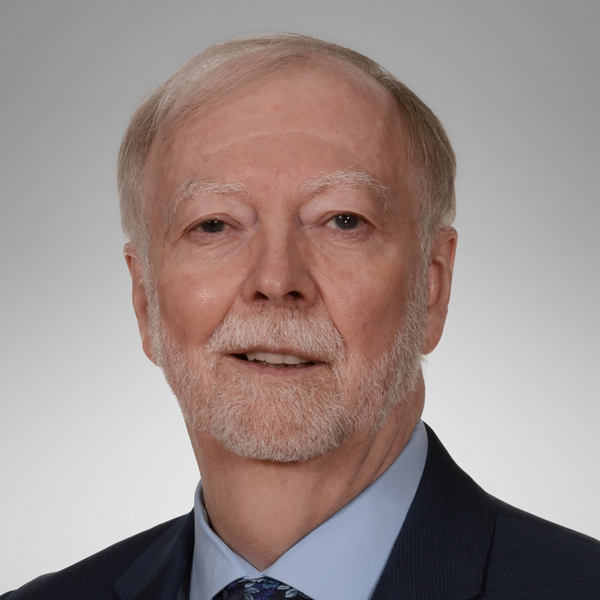
Fabien Gagnon
Professor Emeritus
Learn more
Professor and psychiatrist Fabien Gagnon is a committed member of Université Laval's Faculty of Medicine. Over the course of his career, he has been active on committees and in associations, networks, and groups at the Department of Psychiatry and Neuroscience and has enthusiastically devoted a large part of his career to training competent and caring physicians. He has always been keen to put knowledge into practice, so the public might reap the rewards of his dedication.
A tireless educator
Whether through his extensive medical practice, his senior-level administrative work, or his active participation in professional organizations, Professor Gagnon has worn many hats while remaining fully engaged with his students at Université Laval's Faculty of Medicine. Over the past 30 years he has supervised hundreds of interns and residents in general psychiatry and family medicine at Centre hospitalier de l'Université Laval. He has taught numerous courses in a range of fields, including psychiatric assessment, classification of psychiatric disorders, anxiety and mood disorders, psychopharmacology, and forensic medicine. He has also mentored graduates of the School of Psychology. His teaching skills have been recognized by health associations and professional orders and he has provided continuing education to family physicians, general psychiatrists, forensic psychiatrists, psychologists, and specialized nurse practitioners. His passion for teaching is so deep that even in retirement he continues to teach as a visiting professor at the Faculty of Medicine.
As director of the Psychiatry Residency Program, director of the Department of Psychiatry and Neurosciences, and director of student affairs, Professor Gagnon was committed to making a meaningful contribution to education at the Faculty of Medicine. He served on key faculty and university committees, including chairing the Faculty of Medicine's clinical faculty nominations and promotions committee from 2007 to 2018, and sitting on the University Council from 2007 to 2014. His commitment to the medical profession also extended beyond Université Laval. He was deeply involved with the Canadian Psychiatric Association, serving on the Canadian residency program directors committee and the university department chair committee.
Fabien Gagnon enjoys a stellar reputation among his colleagues across North America. He is frequently invited by different groups and organizations to speak on a variety of critical health issues. He has given talks to numerous scientific organizations, including the Royal College of Physicians and Surgeons of Canada, the Québec and Eastern Canada Branch of the American Psychiatric Association, the Academy of Consultation-Liaison Psychiatry, Conseil médical du Québec, the Canadian Psychiatric Association, and Association des médecins psychiatres du Québec. His outstanding contribution to the development of family medicine, psychosomatic medicine, general psychiatry, and forensic psychiatry has been recognized over the years with an abundance of prestigious nominations, awards, and honours.
Dedicated educator of the next generation, supportive mentor, seasoned manager, champion of progress, advocate for professional ethics and social justice, and tireless physician focused on improving care and services for the public: Professor Gagnon's many roles have made a decisive impact on generations of researchers and clinicians. His unwavering commitment to his work has helped foster Université Laval's sterling reputation.
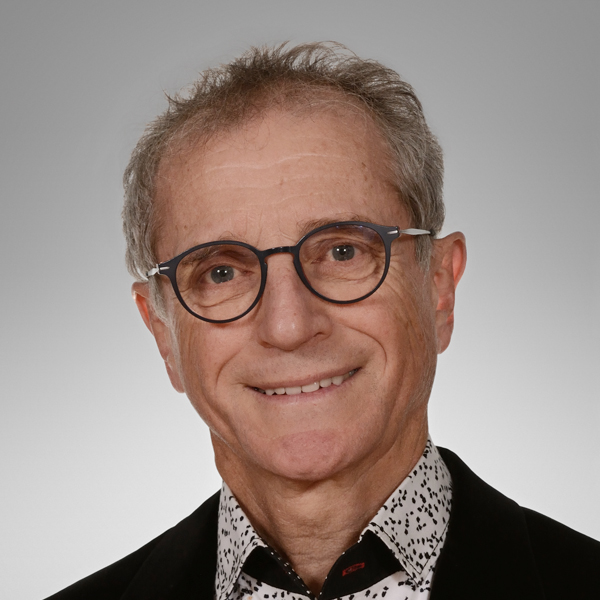
Jean-Pierre Grégoire
Professor Emeritus
Learn more
Professor Jean-Pierre Grégoire is a pioneer in pharmacoepidemiology education, which teaches students to critically assess scientific literature to make better decisions about medications. He was hired in 1997 and made great strides in promoting the discipline, which was rarely taught at the time. Professor Grégoire has dedicated his career to improving pharmacy services and the use of medication.
Professional innovation
Jean-Pierre Grégoire has been a world-class scientist for over 30 years. As a researcher at Centre hospitalier universitaire de Québec's population health research unit, he developed an interest in optimizing the use of medications to treat chronic diseases, and particularly patient non-compliance with drug treatments. He has authored or co-authored five chapters in books published in Québec and the United Kingdom. As a pharmacoepidemiology researcher, he has co-authored 124 articles in international, peer-reviewed journals, such as the Archives of Internal Medicine, Canadian Medical Association Journal, International Journal of Epidemiology, and Journal of Clinical Epidemiology.
Jean-Pierre Grégoire's innovative work has earned him invitations to a wide range of international scientific events. The Department of Pharmacology at Université Victor Segalen Bordeaux 2 in France also asked him to teach a graduate course in pharmacoepidemiology. At the 32nd annual International Conference on Pharmacoepidemiology and Therapeutic Risk Management in Dublin, Ireland, he was invited to present a seminar entitled «Objective Adherence Measurement Techniques.» He gave the seminar again the following year at the 33rd annual conference in Montréal. From 1997 to 2013, he was involved in organizing some 30 conferences and brought the International Society for Pharmacoepidemiology's 23rd annual conference to Québec City, also chairing the scientific committee for the event.
In addition to his research activities, Professor Grégoire was appointed dean of the Faculty of Pharmacy in 2007. During his tenure, he helped attract$2.5 million in funding from the Marcelle and Jean Coutu Foundation,$650,000 from Sandoz, and$280,550 from Familiprix for the Integrated Pharmaceutical Sciences Training Centre. He also created the Faculty of Pharmacy's Teaching and Research Fund, which aims to foster philanthropy among faculty graduates and generate support for innovative initiatives for the next generation of graduates. Professor Grégoire served as president of Québec's Order of Pharmacists from 1993 to 1995. Under his leadership, regulations on pharmacies were amended to make confidential consultation areas mandatory and the code of ethics was strengthened to prohibit pharmacists from selling tobacco products.
Professor Grégoire's outstanding contribution to the advancement of his profession has earned him prestigious awards, including fellowships in the Canadian Academy of Health Sciences, the International Society for Pharmacoepidemiology, and Québec's Order of Pharmacists. In 2018 he received the Louis-Hébert Award, the order's highest distinction, yet further evidence of his brilliant academic career.
Professor Grégoire's vision and outstanding contribution to the advancement of knowledge in pharmaceutical sciences are recognized and celebrated by the academic community and his fellow scientists. He has made an exceptional contribution to Université Laval's reputation in the health sciences, both within Québec and internationally.
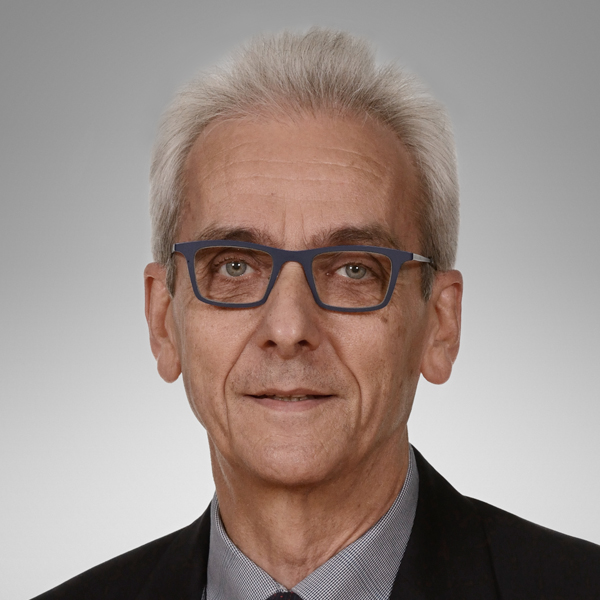
Louis M. Imbeau
Professor Emeritus
Learn more
Louis Imbeau's work has advanced many areas of political science and created an invaluable legacy for future generations of researchers and society at large. His groundbreaking research has put Université Laval's Department of Political Science at the forefront of public policy analysis.
A lasting contribution for all of society
Professor Imbeau's work touches on a wide range of issues in the field of political science, including international development aid, fiscal policy for Canadian provinces, economic policy for public finance, comparative analysis of constitutions, systematic analysis of constitutions, systematic analysis of political discourse, and parliamentary control of public finances. As the founding director of Université Laval's Centre for Public Policy Analysis, he provided the impetus to create poltext.org, a collection of digitized political texts. The landmark project has positioned the University as a repository for a growing body of public texts and speeches, including election platforms for political parties, throne speeches, budget speeches from federal and provincial governments, and constitutional texts from most countries around the world.
Louis Imbeau's expertise on international aid has also resonated on the world stage. He received the prestigious Stein Rokkan Prize from the International Science Council, UNESCO, and the European Consortium for Political Research for his work on the factors that influence allocation of international aid to developing countries. He also headed up two international research projects: Do They Walk like They Talk?, on the relationship between discourse and action in fiscal policy, and Behind a Veil of Ignorance?, on the design of national constitutions. These projects brought together researchers from Ireland, France, Belgium, Switzerland, Italy, and Germany. The results were published by leading publishing house Springer. A prolific researcher, he has authored many scholarly publications and was a visiting professor at universities in France, Italy, the U.S., and Turkey.
Professor Imbeau's contribution to Université Laval's Department of Political Science has been equally impressive. He was director of undergraduate studies from 1989 to 1991, director of the master's program in policy analysis from 1994 to 1996, and director of the political science PhD program from 1994 to 1996. He has also taught countless graduate and undergraduate courses. Professor Imbeau was involved in setting up the International Parliamentary Training Program for the Research Chair on Democracy and Parliamentary Institutions in collaboration with the World Bank and Québec's National Assembly. Louis Imbeau's educational leadership has produced a range of initiatives that aim to provide quality academic instruction. He has founded and headed up an educational series entitled «Méthodes des sciences humaines» (Methods in the Social Sciences) and published multiple textbooks. He has also developed innovative teaching methods, including a «reverse education» course that simulates the Québec government's budgetary process.
Acclaimed for his creativity and innovative spirit, Professor Imbeau has made a positive and lasting impact, shining an international spotlight on Université Laval's political science expertise. He has laid strong foundations in education and basic and applied research for future generations to build upon.
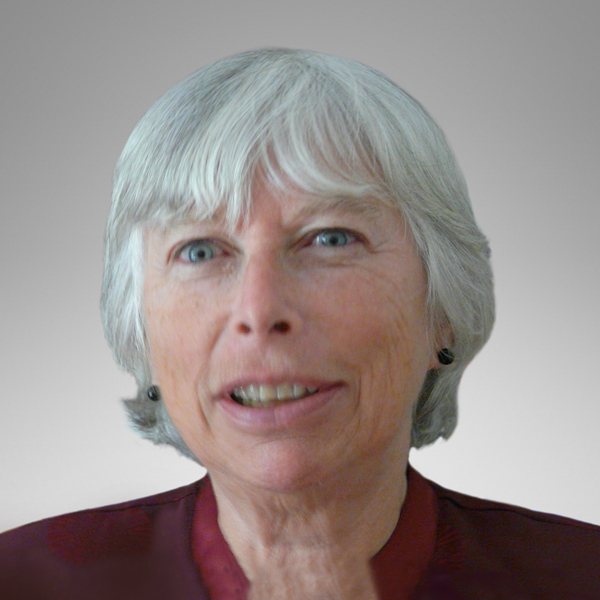
Diane Lamoureux
Professor Emerita
Learn more
Professor Diane Lamoureux is a leading figure in women's studies across the French-speaking world. She has drawn on her extensive body of research combining political theory and feminism to write authoritative texts on feminism, nationalism, and social movements. Her work has earned her a reputation that extends far beyond the academic community. A dedicated educator, she has taken great pride in training professionals who foster social progress.
Renowned across the French-speaking world
After studying history, political science, and sociology, Professor Lamoureux began teaching at Université Laval's Department of Political Science. Many of her graduate students have gone on to teach at universities in Québec and abroad.
Diane Lamoureux's interest in women's studies began long before she became a professor. Her PhD dissertation on the emergence of feminism in Québec in the 1970s formed the basis for her first book, Fragments et collages (Fragments and Collages). Throughout her career, she has studied the evolution of feminism and pivotal social issues, including the status of women and abortion. Her work has dealt with feminist theory and focused specifically on thinkers such as Simone de Beauvoir, Colette Guillaumin, Nancy Fraser, Iris Marion Young, Patricia Hill Collins, and Françoise Collin. As one of the first French-speaking researchers to articulate the importance of queer theory, she was at the leading edge of critical thought. She organized a conference on the subject and edited a book entitled Les limites de l'identité sexuelle (The Limits of Sexual Identity). The Montréal massacre sparked her work on antifeminist politics and ideology.
Professor Lamoureux's work has resonated around the world, earning her recognition in Québec, France, Belgium, Switzerland, Martinique, and Haiti. She was a visiting professor at Institut d'études politiques de Lille and Université libre de Bruxelles, where she held the Suzanne Tassier Chair. An acclaimed author, she has published four books and co-edited ten. Les idées politiques de Platon à Marx (Political Thought from Plato to Marx), a textbook on the history of political ideas she co-authored with colleague Michel Duquette, has been republished twice and reprinted 11 times. She has also published actively in two prestigious French journals, Les Cahiers du CEDREF and Les Cahiers du genre. In total, she has authored 36 articles in peer-reviewed journals, 54 book chapters, and 211 academic papers.
Professor Lamoureux has been deeply involved in faculty life, including as the director of the integrated bachelor's degree in philosophy and political science and director of graduate studies at the Department of Political Science. She also served on the Faculty of Social Sciences Council and sat on numerous Department of Political Sciences committees, including for recruitment. She helped found the journal Recherches féministes and sat on the editorial board from 2009 to 2017.
Diane Lamoureux's expertise is highly sought after. She is often asked to comment in the media on issues, events, and news related to the status of women and feminism. The universality of her research echoes Université Laval's values and has solidified its standing in the field of women's studies.
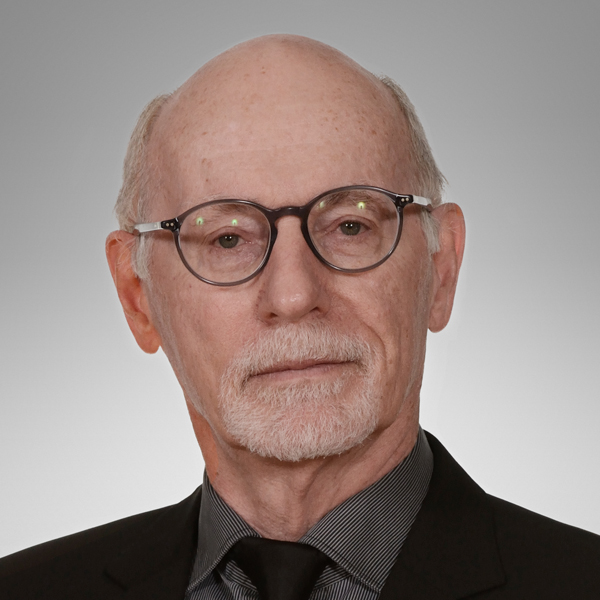
Michel Laviolette
Professor Emeritus
Learn more
Michel Laviolette is a world-renowned pneumology researcher who is highly attentive to his patients. As an experienced manager, he constantly seeks results, and as a professor, he's dedicated to training the next generation of pulmonary health professionals. Professor Laviolette has helped develop the Québec Heart and Lung Institute into a world-class institution and is responsible for a prized initiative—a one-of-a-kind tissue biobank that is the envy of research centres around the world.
Visionary builder and mentor
Michel Laviolette started his career in the early 1980s at Hôpital Laval (now the Québec Heart and Lung Institute), where he headed up respirology research from 1990 to 1998, chaired the council of physicians, dentists, and pharmacists from 1998 to 2001, and directed the multidisciplinary department of respirology and thoracic surgery from 2004 to 2021.
Professor Laviolette is one of the key architects of the Québec Heart and Lung Institute's ascent to world-class status in the field of lung disease. He has built up a long list of remarkable achievements throughout his prolific career. As a researcher and clinician he has received support from the health component of the Québec research fund and the Canadian Institutes of Health Research. Respiratory endoscopy has been one of his principal areas of research. This less invasive technique has enabled researchers to collect valuable data from healthy patients to gain insight into the development and evolution of respiratory illnesses. Professor Laviolette's reputation and skills piqued the interest of numerous specialists, with whom he collaborated to develop bronchial thermoplasty, a new treatment for asthma. In recent years, Professor Laviolette has developed immunomodulatory treatments for asthma, an offshoot of his previous research on the role of eosinophils in the disease. His pioneering work has led to a host of new treatment options.
In the early 2000s, his belief in the strong links between basic and clinical research prompted him to build a biobank by collecting and preserving healthy and cancerous tissues from lung cancer patients undergoing surgery. Over the years, the biobank has become a repository for human tissue of all kinds. It currently holds some 100,000 samples from over 20,000 cases of respiratory and cardiovascular diseases and obesity-related conditions. The biobank's sheer magnitude, combined with its exacting organizational structure and the quality of the data it contains, makes it a unique resource and a gold mine for researchers.
Michel Laviolette's commitment to education is equally prodigious. He has supervised internships for dozens of respirology residents, supervised or co-supervised some 20 graduate students, and been a reader on countless dissertations. Over the course of his career, he has helped train the next generation and provided a springboard for talented researchers and teachers.
Professor Laviolette's vision, his constant search for measurable results, and his desire to pave the way for the future of pneumology research have made him an exceptional researcher, professor, manager, and clinician. His outstanding skills and talent have helped establish the Québec Heart and Lung Institute's stellar reputation in the scientific community.
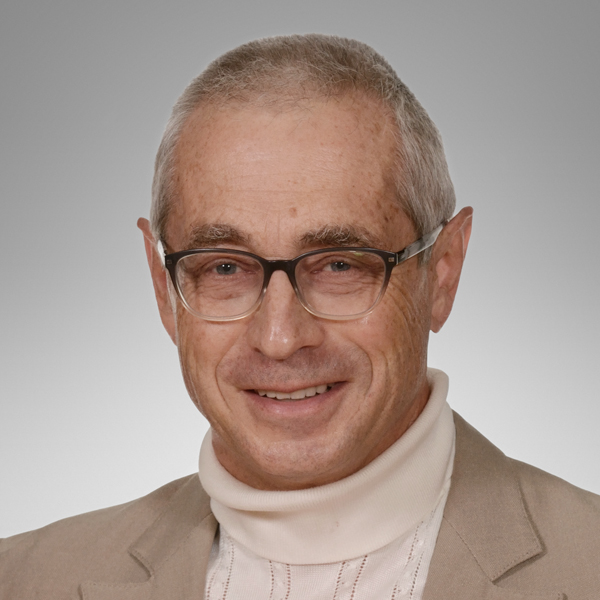
Bernard Moulin
Professor Emeritus
Learn more
Professor Bernard Moulin's work on knowledge modelling and intelligent systems design has helped propel Université Laval to the forefront of computer science and software engineering. His multidisciplinary approach has spawned numerous applied research projects across a range of fields, including computer science, information systems, linguistics, geography, geomatics, geology, archaeology, environmental health, agronomy, and geomorphology. As a leading professor at the Faculty of Science and Engineering, he has nurtured students' creativity and developed the talent that is pushing technology ever-forward today.
Lab to market
Bernard Moulin has taken an active interest in the technological advances that have revolutionized all sectors of human activity. He has also been deeply involved in undergraduate and graduate training, supervising over a hundred graduate students, postdoctoral fellows, and research professionals at his lab. The PhD program created under his leadership in 1992 laid the foundations for computer science and software engineering research at Université Laval and ensured a bright future for the discipline.
Professor Moulin is recognized as an international expert on computer systems analysis and design and knowledge representation and has been awarded over$7 million in research grants and contracts. A true visionary, he began investigating artificial intelligence (AI) in the 1980s. To promote the then-underdeveloped field in Québec, he joined forces with research teams at five other universities in the province to form the Inter-University Research Group on Cognitive Informatics in Organizations in 1986, serving as the group's founding president. Their objective was to promote AI and cognitive science research and find application for it in organizations.
In 1995 he joined the Geomatics Research Centre, where he developed innovative AI applications in geomatics, including representation of spatial knowledge, on-the-fly mapping, and multi-agent geosimulation. In 1998 he helped found GEOIDE, a network of centres of excellence in geomatics hosted by Université Laval, which bolstered geomatics research in Canada from 1999 to 2012. At GEOIDE, he headed up numerous projects with prominent partners, including the Public Health Agency and the Department of National Defence.
Bernard Moulin's work has generated multiple technology transfers. Between 1994 and 1996, he supervised a joint industry and university team that developed MOOM Tutor software for teaching object-oriented systems analysis and design methods. Software company Logiciels Action subsequently brought the system to market. In 2004 he transferred the results of a GEOIDE project to startup Nsim Technologies, which developed its own products based on the software agents, cartography, and artificial intelligence he delivered.
From 2004 to 2008, he was deeply involved in the eFez e-government project in Morocco, providing methodological guidance and project management expertise. The eFez software was taken to market by Moroccan startup Enhanced Technologies. The project won several prestigious awards, including a 2007 United Nations Public Service Award for improvement of service delivery.
Bernard Moulin's many publications, including his countless articles and numerous books, and his participation in international events has earned Université Laval a worldwide reputation in computer science and software engineering. His outstanding contributions are a source of pride for the entire university community.
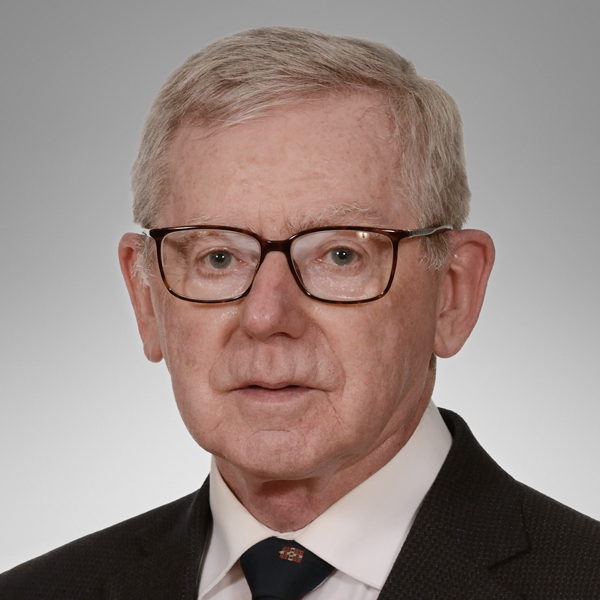
Paul-Hubert Poirier
Professor Emeritus
Learn more
Professor Paul-Hubert Poirier's work on early Christianity, in particular his editions of ancient Greek, Syriac, and Coptic manuscripts, has earned him a place among the world's leading scholars. His achievements include the publication of the Nag Hammadi Coptic Library, a colossal undertaking and a research landmark at Université Laval. The quality and philological rigour of his editions and translations of Syriac texts are second to none. The breadth of Paul-Hubert Poirier's scholarship has earned him the highest honours in Québec, Canada, and France.
Singularly erudite and humane
Professor Poirier has put his extensive knowledge, scholarly expertise, and mastery of ancient and modern languages to work in educating hundreds of students at Université Laval's Faculty of Theology and Religious Studies and Faculty of Arts and Human Sciences. As a tenured and adjunct professor, he created and taught over 230 graduate and undergraduate courses and seminars on theology, religious studies, classical studies, history, ancient eastern languages, and Greek. His teaching abilities brought him to École pratique des hautes études de Paris, the Faculty of Protestant Theology at Université de Lausanne in Switzerland, and the Pontifical Institute of Mediaeval Studies in Toronto as a visiting professor. From his appointment as a full professor in 1998 to retirement, Paul-Hubert Poirier supervised some 60 graduate students and was a reader on over 80 theses and dissertations at Université Laval and other universities in Québec, Canada, and Europe.
Professor Poirier has published an impressive list of critical editions and translations of ancient manuscripts. One of the best known is the nine-volume Nag Hammadi Coptic Library, a monumental project he directed from 1981 to 1998, and has since co-directed. He has also directed or co-directed the production of eight collaborative works in classical studies and taken part in 82 others. He has published 14 books since 1988—and is currently preparing a 15th—and has published 39 articles in peer-reviewed scholarly journals. Professor Poirier has shared his expertise with a very wide audience, delivering 167 papers and participating in 103 national and international scholarly events. He headed up the Institute of Classical Studies from the year it was founded in 1999 to 2005, and again from 2011 to 2014.
The calibre of Paul-Hubert Poirier's scholarship and his outstanding work have garnered many honours. He was elected to the Royal Society of Canada's Academy of Arts, Humanities, and Social Sciences in 1990, named an Académie des Inscriptions et Belles-Lettres correspondent in 2006 and foreign associate in 2015, and joined Institut de France. His work earned him the Pierre Chauveau Medal from the Royal Society of Canada, in recognition of his outstanding contribution to the social sciences and humanities. In 2006 he was named a Knight of the Ordre national du Québec.
These well-deserved honours have burnished Université Laval's world-class reputation in classical studies. The remarkable rigour of his research and the openness to the world that informs his work have yielded an exceptional contribution to his discipline.
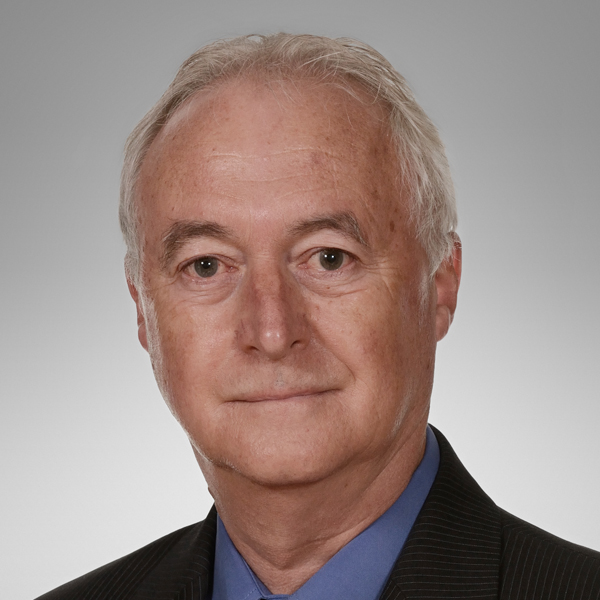
François Pothier
Professor Emeritus
Learn more
Professor François Pothier is a renowned biologist who is dedicated to teaching and introducing science to the widest possible audience. He achieved international prominence early in his career for his work on transgenic genetic modification in animals, which thrust him to the forefront of ethical debates about the production of genetically modified organisms (GMOs), animal welfare, cloning, xenografts, and surrogate pregnancy.
Research in service of community
«It's the best job in the world! We get paid to create, invent, spark young people's interest, and inspire enthusiasm!» That's what François Pothier has to say about teaching. He goes beyond simply passing down knowledge, inspiring his students to ponder the big questions about their role as agronomists and core values. His teaching skills are unmatched, as illustrated by his consistently high course evaluation scores and awards such as the Paul Gervais Award for Teaching Excellence from the Faculty of Agriculture and Food Sciences and the Teaching Award of Merit from North American Colleges and Teachers of Agriculture. Student success has always been a priority for Professor Pothier, so he has found innovative ways to help students in difficulty, creating the Writing Assistance Centre and organizing the «Long Evening of No More Procrastination» event.
François Pothier has made a lasting impact the international scientific community. A world-class biologist, he has pursued advanced research on transgenic genetic modifications and earned multiple patents. The controversies raised by the manipulation of life, especially transgenesis and cloning, put him in the media spotlight. And instead of shying away from controversy, he seized the opportunity to educate the public, student body, and government on the merits of science. To clarify the ethical issues surrounding his work, he helped found a think tank on transgenic animals that brings together biology researchers, philosophers, lawyers, and bioethicists. This new focus propelled him to write numerous books and articles on ethical issues and speak before influential bodies, including UNESCO's International Bioethics Committee, the Canadian Senate and large federal government agencies. He was also a founding member of Québec's science and technology ethics commission from 2001 to 2008. Rather than retreating to an ivory tower, François Pothier has used his research as a vehicle to connect with the public.
As president of the Academic Board, Professor Pothier presided over a rewarding venue for discussion, democracy, and mutual respect. He ended his career with a full term as deputy vice rector of academics.
François Pothier's communication skills, ability to popularize science, and remarkable scientific rigour have made him a tremendous ambassador for Université Laval. He has built sustainable and transparent connections between the worlds of research, education, and general society. Professor Pothier's extensive work on ethical and scientific issues has made a meaningful contribution to Université Laval's mission.

Carol Lillian Richards
Professor Emerita
Learn more
Professor Carol Lillian Richards is a pioneer in rehabilitation research and one of the first physiotherapists to pursue doctoral studies. When she joined Université Laval in 1978, the field of rehabilitation, and physiotherapy in particular, had yet to be fully embraced by the academic and scientific communities. She was instrumental in creating the Department of Physiotherapy and headed it up for several years. Her leadership was instrumental in laying the foundation for scientific research and evidence-based clinical practice.
As head of research development, she set up a rehabilitation research unit at the Neurobiology Research Centre at Hôpital de l'Enfant Jésus that has become a magnet for graduate students and researchers. As a member of research committees and the executive committee of Québec's health research fund, she actively lobbied politicians and university administrators to invest in rehabilitation training and interdisciplinary research. In 1994 she became the founding director of the Québec Rehabilitation Research Network. This model of interdisciplinary research had a decisive impact on rehabilitation research in Québec and its influence continues well beyond the province. As a result of the network's success and the efforts of Professor Richards and her colleagues, Ministère de la Santé et des Services sociaux and other health and social services granting agencies provided funding to create two rehabilitation research centres—one in Montréal and another in Québec City. The Centre for Interdisciplinary Research on Rehabilitation and Social Integration in Québec City was created under her steady guidance and remains a benchmark institution in Canada.
Carol Lillian Richards' research investigates motor recovery, with a special focus on walking and social integration of people with neurological disorders. She is a past Canada Research Chair in Rehabilitation and Université Laval Research Chair in Cerebral Palsy. She has directed and co-directed large research teams, supervised countless graduate students and postdoctoral fellows, contributed to 196 scientific articles and book chapters, and delivered some 200 guest lectures around the world.
Professor Richards has also fostered research in Canada and internationally as a member of numerous advisory committees and boards, including the Canadian Institutes of Health Research, two Centres for Research Excellence, the Canadian Stroke Network, NeuroDevNet, and the Ontario Neurotrauma Foundation. Professor Richards has received a trove of awards, including the Enid Graham Memorial Lecture Award from the Canadian Physiotherapy Association, the Jonas Salk Award from March of Dimes Canada, the Outstanding Contribution Award from the Québec Heart and Stroke Foundation, and, in 2014, the Distinguished Career Award from Québec's professional order of physiotherapists, which has since been renamed in her honour. She is a founding member of the Canadian Academy of Health Sciences, an Officer of the Order of Canada, and a Knight of Ordre national du Québec. She also received the Queen Elizabeth II Diamond Jubilee Medal and holds honorary doctorates from the University of Ottawa, Université de Sherbrooke, and Dalhousie University.
Over and above these accolades, Professor Richards has made a lasting contribution to Université Laval, her profession, and society. Her efforts to transfer research findings to government and clinical settings have helped improve quality of life for everyone.
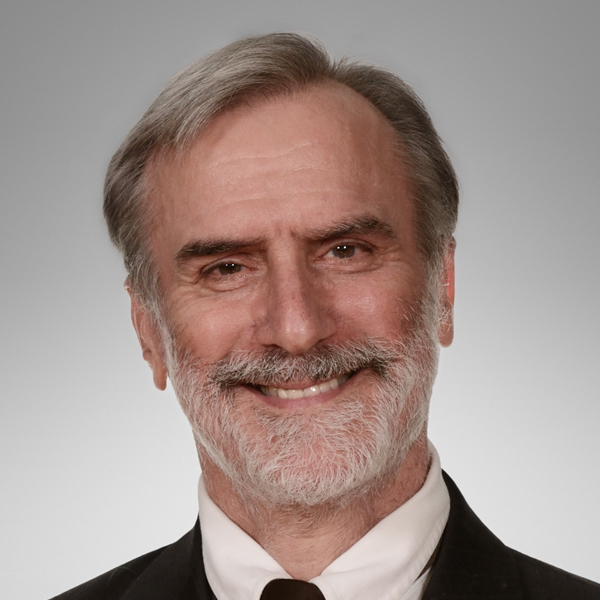
Bernard Riedl
Professor Emeritus
Learn more
Professor Bernard Riedl has dedicated his professional life to investigating cellulose-based adhesives, nanocomposites, and coatings to create healthier wood products. A visionary, gifted researcher, and devoted educator, he has skillfully balanced multiple roles to help train a new generation of forward-looking researchers.
A pillar of sustainable development
As a professor at the Faculty of Forestry, Geography and Geomatics from 1987 to 2015, Bernard Riedl always found time to supervise graduate students and postdoctoral fellows. He equipped a talented and innovative generation of researchers with the tools to develop materials that are better for human health and the environment. Many of his former students have gone on to successful careers in wood processing and chemistry education and research.
Professor Riedl undertook innovative research on adhesives and coatings for wood using thermosetting systems containing nanoparticles. He also worked on developing bio-based adhesives to replace urea formaldehyde, a known carcinogen, and is considered a trailblazer in the use of the sugar-based substance furfural. The lab Professor Riedl set up to study adhesives soon after his arrival in 1987 is still very active. A prolific researcher, he has authored over 230 publications in peer-reviewed journals and given talks at countless conferences. To date, his work has been cited over 8,000 times—a testament to his influence on the scientific community.
Bernard Riedl forged valuable links with other Canadian universities and teamed up with fellow scientists to form highly productive research partnerships. At Université Laval he was a member of the Wood Research Centre, the Renewable Materials Research Centre, the Centre for Research on Advanced Materials, the Research Centre for Plastics and Composites, and Nano4Laval. He also served on the Natural Sciences and Engineering Research Council of Canada's Strategic Network on Forest Management for Value-Added Products and was a member of numerous associations, including Québec's order of chemists, the American Chemical Society, and the Forest Products Society, and is a fellow of the International Academy of Wood Science.
Professor Riedl's passion for science and teaching still burns bright. Whether as an adjunct professor at the Faculty of Forestry, Geography and Geomatics, or an associate member of the Renewable Materials Research Centre, he remains active in wood sciences. He is involved in training and research as a member of seven PhD supervisory committees and continues to share his remarkable teaching skills with the public via «From the forest to the plate,» an introductory course on cooking with the pine tree, which is held in Montmorency Forest, the world's largest teaching and research forest.
Professor Riedl's career is a model of excellence. His impressive body of work will have a lasting impact on the global effort to use natural resources responsibly and sustainably.
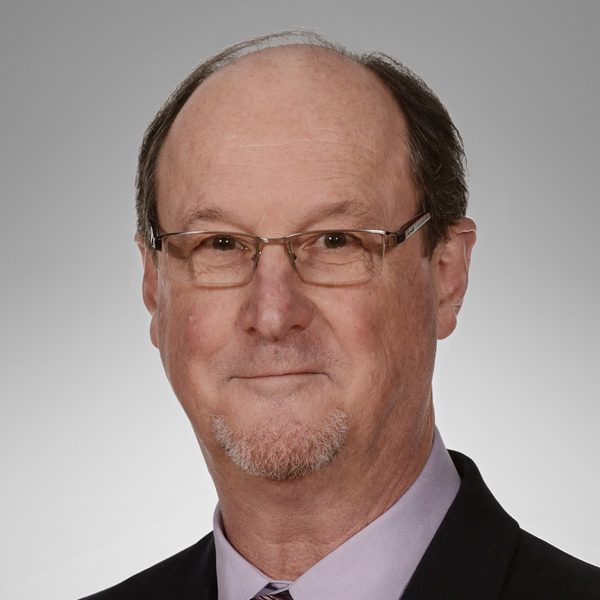
Michel Vincent
Professor Emeritus
Learn more
Michel Vincent is a luminary in the field of molecular embryology who has succeeded in balancing his vocation as a researcher, his passion for teaching, and his commitment to faculty and university life in order to train the next generation of elite health scientists. Professor Vincent's career is full of outstanding achievements, including major scientific breakthroughs, key contributions to programs at the Faculty of Medicine, and educating a new generation of scientists.
Putting the next generation first
From the moment he joined the Université Laval Faculty of Medicine in 1985, Michel Vincent got actively involved in creating graduate programs in cellular and molecular biology—core areas in the field of health sciences. After heading up these programs for 14 years, he took on a new challenge as director of graduate studies at the Faculty of Medicine. Overseeing nearly 20 programs in nine areas of health care was a daunting task that yielded major accomplishments. These included drafting the faculty's policy on graduate student supervision and participating in committees to improve the faculty's programs.
One of Professor Vincent's greatest achievements is the creation of an undergraduate program in biomedical sciences, a mission entrusted to him by faculty management in 2006. His goal was to align basic undergraduate training with the needs of human disease research. Professor Vincent's extensive research experience and intimate knowledge of graduate studies made him the ideal person to instill the program with vision and values and rally faculty staff around it. He headed up the program until his retirement in 2016. During that time, he devoted a great deal of energy to supporting his colleagues, nurturing an educational mindset and encouraging faculty to adapt their teaching methods to the needs of undergraduate students.
Professor Vincent has earned an international reputation as a researcher for his work on myogenic differentiation and the links between gene transcription and messenger splicing. His work generated so much interested that received continuous funding for over 30 years from various federal and provincial agencies and national foundations. Professor Vincent and his team demonstrated that the transitin/nestin protein (cytoskeletal protein) is involved in initiating the embryo's myogenic program. They also provided some of the first proof that molecular links couple gene transcription and messenger splicing. Michel Vincent has authored over 150 scientific publications, some 50 of which appeared in peer-reviewed international publications. He has helped train dozens of undergraduate interns and over 30 graduate students.
An elite researcher with outstanding managerial skills and a forward-looking teacher with a desire to train the next generation of passionate and talented researchers—that's Michel Vincent's career in a nutshell. His intelligence, professionalism, and dedication have been instrumental in forging Université Laval's reputation as an institution of choice and a leader in health sciences research.
Emeritus statuses for years prior to 2017 are currently available in French only.